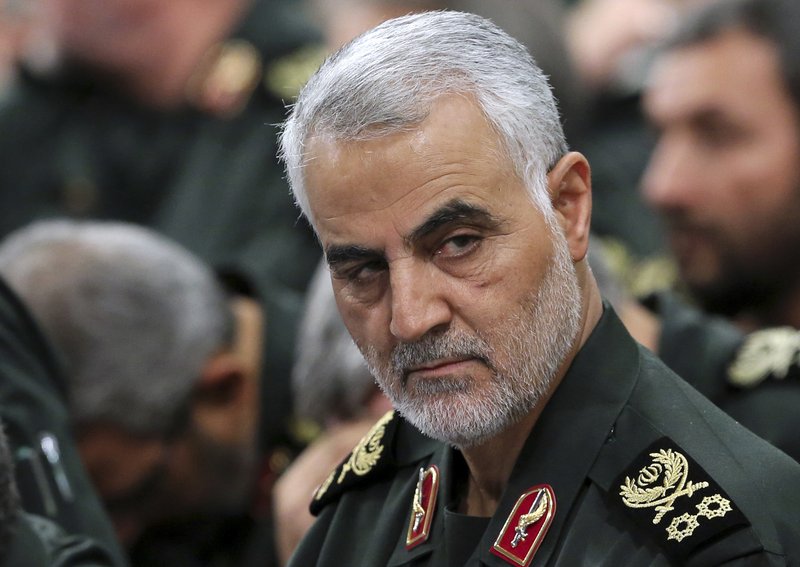US Killing of Iran's Gen. Soleimani 'Clearly an Assassination': Expert to AP
Alwaght- The US regime's targeted killing of Iranian General Qassem Soleimani was “clearly an assassination,” Associated Press cited an expert in international law as saying.
American forces assassinated Major General Soleimani and deputy head of Iraqi Popular Mobilization Forces Abu Mahdi al-Muhandis early on Friday in the Iraqi capital Baghdad.
The Pentagon confirmed in a statement that US President Donald Trump authorized the assassination operation.
“At the direction of the president, the US military has taken decisive defensive action to protect US personnel abroad by killing Qasem Soleimani,” the Pentagon said in a statement.
Although the US and Iran have long been adversaries and engaged in a shadow war in the West Asia and elsewhere, the US has never declared formal war on Iran. So the targeted killing of a high Iranian state and military official by a surprise attack was “clearly an assassination,” Mary Ellen O’Connell, an expert in international law and the laws of war at the University of Notre Dame School of Law told AP.
Whether the killing is framed as part of an armed conflict between two states or as a police action intended to deter terrorism, it cannot be characterized as an act of self-defense because there was never a full-fledged and direct attack on the United States by Iran. The United States’s legal reason for being in Iraq is to deter the Islamic State group, not to fight against Iran, O’Connell noted.
“Assassination is prohibited both in peacetime law as well as on the battlefield,” she said.
“We have really moved to a nearly lawless state,” she said. If the justification for a military response is self-defense, the response should be “necessary and proportionate.” But that would not justify individual targeted killings, she said.
The premeditated killing of a specific individual commander for what they have done on the battlefield or what they may do has been prohibited by the law of armed conflict dating from the Hague Conventions of 1907, and by a protocol of the Geneva Convention in 1949 saying “it is prohibited to kill, injure or capture an adversary by perfidy,” she added.
International war law aside, there also has been a US executive order in place since 1976 forbidding the US from carrying out political assassinations. The order came into being after revelations that the CIA had organized or sanctioned assassination attempts against foreign leaders including Fidel Castro.
The current version of the executive order states: “No person employed by or acting on behalf of the United States Government shall engage in, or conspire to engage in, assassination.”
Associated Press, however, has admitted that the news agency refrains from describing General Soleimani’s killing as an assassination both because it would require that the news service decide that the act was a murder, and because the term is politically freighted.
Iran’s Supreme Leader Ayatollah Sayyed Ali Khamenei vowed harsh revenge, saying criminals who martyred Qassem Soleimani and his death, though bitter, would double the motivation of the resistance against the American and Israeli regimes.
“All enemies should know that the jihad of resistance will continue with a doubled motivation, and a definite victory awaits the fighters in the holy war,” Iran’s leader said in a statement carried by state television, in which Ayatollah Khamenei called for three days of national mourning.
Iran’s President Hassan Rouhani said the assassination would make Iran more decisive in its resistance to the United States while Iran’s Revolutionary Guards said anti-US forces would exact revenge across the Muslim world.
The Iranian foreign minister, Mohammad Javad Zarif, said on Twitter: “The US’ act of international terrorism, targeting & assassinating General Soleimani – THE most effective force fighting Daesh (ISIS), Al Nusrah, Al Qaeda et al – is extremely dangerous & a foolish escalation. The US bears responsibility for all consequences of its rogue adventurism.”



























